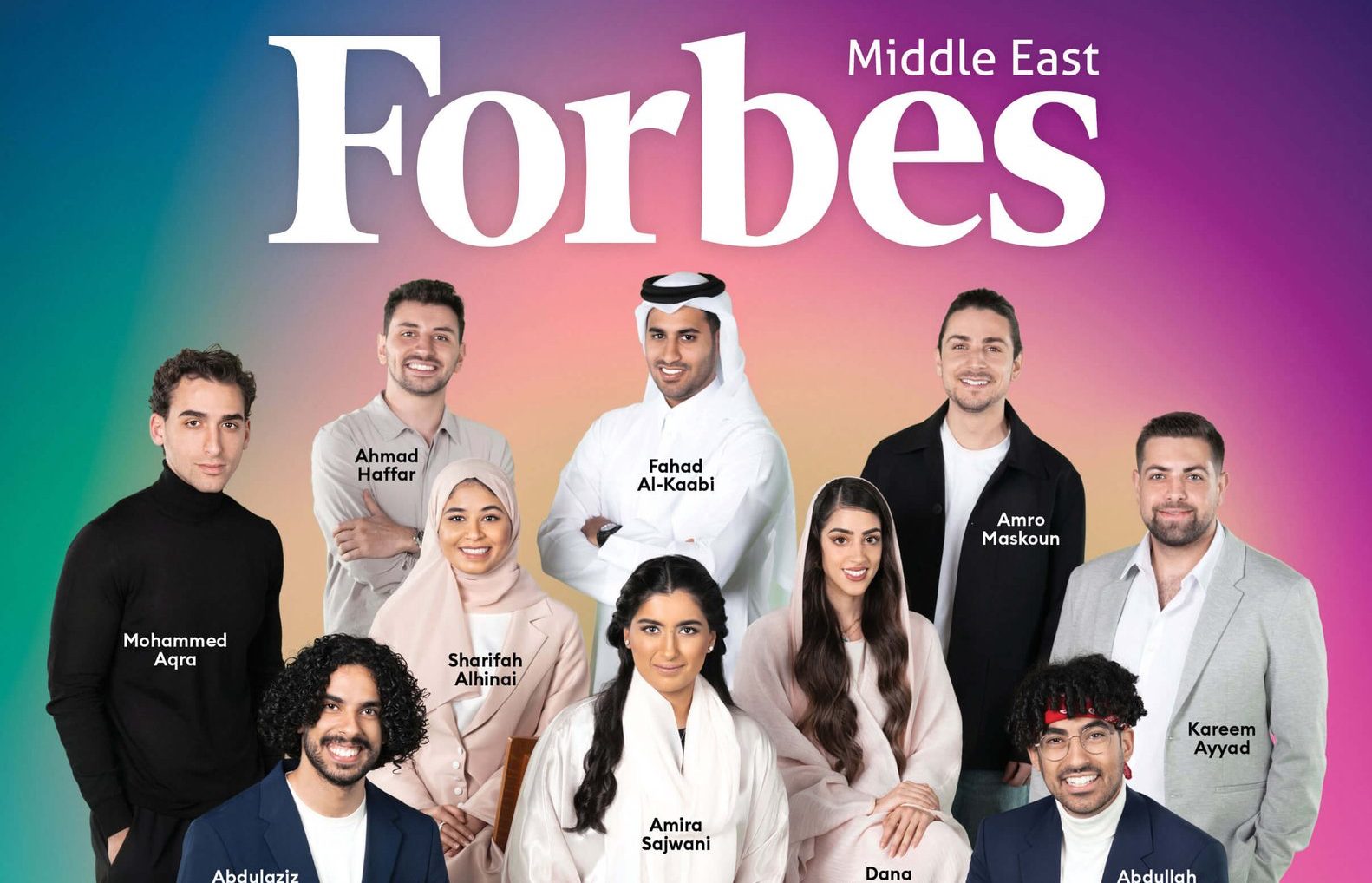This years’ list spotlights 145 exceptional young people from 20 different nationalities.
Qatari entrepreneur Fahad Al Kaabi was among a list of influential individuals revealed in Forbes Middle East’s 30 under 30 2023 cohort.
The 25-year-old, lauded by the magazine for his being impactful on the local community, edged pass 600 candidates across the region who applied before making the final 145 illustrious names in the the November issue.
At 21, Al-Kaabi partnered with Qatar Foundation after securing a build-operate-transfer contract to develop a sports complex. This would prove pivotal in his entrepreneurial journey as the following year, he launched his FSSK Holding company, according to Forbes.
Al-Kaabi would later go on to become Saudi Arabia’s exclusive distributor of Adidas Padel rackets after establishing a joint venture partnership with Saudi’s Global Sports Gate group.
Alongside Al-Kaabi, fellow notable illustrious names from the GCC highlighted by Forbes in the ‘social impact’ category include 20-year-old AbdelQader Al Saqqaf (20) from the United Arab Emirates (UAE) and Saudi Arabia’s Abdullah Alalawi (28), whose Msafh Community platform provides online workshops.
Of notable mention in this category are Palestinian innovators, Tala Al-Sharif and Ahmad AlBadarna (26 and 28). Together, they launched the Female Chimeras project to amplify the inspirational stories of Palestinian women to the world.
Al-Kaabi is also joined by Abdelrazek Aly and Ramy Abdulzaher, Abdullah Al-Atrash, Ahmed Samir Ead, Alaa Afifi, Aly Mohamed, Ashay Bhave, Bassel Jalaleddine, Craig Fernandes, Evlin Khalifa, Hadeer Shalaby, Christian Gemayel, Hussein Ayoub, Jaser Alharasees, Thaer El Ledawi, Luma Makari, Marc Aoun, Maxim Kaplevich, Mohamed Ezz, Mohammad Zatara, Mohammed Ihsan, Mustafa Abd Ellatif, Omar Emara, Omer Badokhon, Reine Metlej, Yasmina Zaytoun, Yomna Gaafar and Yusra Mardini in the ‘social impact’ category.
Eligibility criteria
To be eligible for the 2023 cohort, applicants had to have been born in 1993 or later. For instance, this year’s youngest awardee, Egyptian tennis player Hana Goda, aced her way to the list at just 15 years old.
Applicants of all nationalities were also eligible to apply, so long as their business was based in the Middle East region for the benefit of the community.
Al-Kaabi’s journey to the Forbes list, as with his fellow awardees, was met by rigorous rounds of assessments from the magazine’s internal research and editorial teams to form a shortlist of 240 candidates.
Shortlisted applications were then referred to an expert external panel of 12 judges, which included Lana Khalaf, Microsoft’s Country Manager for Qatar and the UAE’s Mohamed Al Sharhan, the Managing Director at World Governments Summit.
According to Forbes, each applicant was just based on their “ impact on their industry, market, society, and future potential were considered.”
“Quantifiable data such as funds raised, awards won, revenues, the value of deals, number of people impacted, number of customers, and number of social media followers were also taken into account,” said Forbes.
A total of 15 of the final awardees hailed from Saudi Arabia while the majority of listees have their initiatives based in the UAE. However, the Class of 2023 saw Egypt secure the highest number of awardees, with 44 Egyptian nationals listed in this year’s cohort.
Unlike last year, Class of 2023’s honourees were divided into four categories, with each boasting at least 30 impactful awardees.
Aside from Al-Kaabi’s ‘social impact’ category, awards were also given to the region’s young people for their innovations in ‘science and technology,’ ‘entertainment’ and ‘commerce and finance.’







